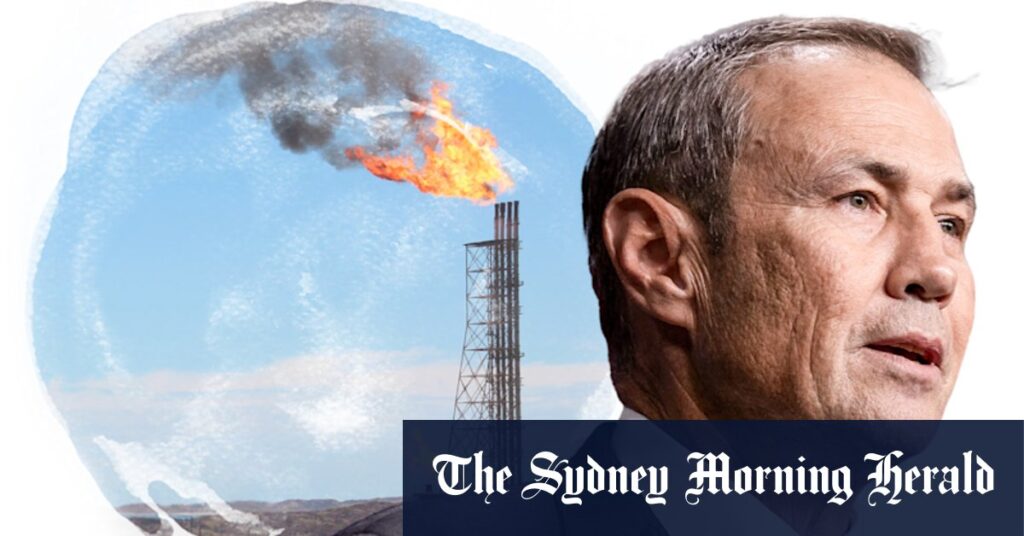Premier Roger Cook says gas is good for the world, “even if it doesn’t make a good hashtag or look good on a bumper sticker.” It’s a revealing remark—especially as Woodside’s North West Shelf, Australia’s largest gas project, has just been approved for a life extension out to 2070. That decision alone will lock in billions in gas-related investment for decades to come, shaping Western Australia’s economic trajectory long after most of the world has moved on from fossil fuels.
The message is clear: WA is doubling down on gas. But for many West Australians, this is starting to feel like a gamble with high stakes and few winners. It might be good for energy giants and shareholders, but for households, small businesses, and the state’s long-term prosperity, the risks are mounting.
WA Premier Roger Cook says WA is ideally placed to capitalise on the carbon storage industry.Credit: WAtoday
We’ve been here before. When the mining boom collapsed around 2014, the pain wasn’t limited to the Pilbara or Goldfields. Perth’s housing market slumped, fly-in fly-out jobs disappeared, and state revenues fell off a cliff. The entire economy had been hitched to global commodities — and when prices crashed, so did WA’s growth.
Now, the same pattern is repeating. WA is a gas heavyweight — exporting 47 million tonnes of LNG last year and supplying around 60 per cent of Australia’s gas. Yet despite its vast reserves and a 15 per cent domestic reservation policy, local households are still facing higher gas prices, driven not by local scarcity but by exposure to international markets.
Since 2020, wholesale gas prices in WA have tripled, and consumers now face some of the highest retail gas prices in the country. If one of the world’s most gas-rich jurisdictions, backed by a domestic reservation, can’t deliver affordable gas to its own people then the system clearly isn’t working in the public interest. It’s a glaring contradiction: vast local supply, a legislated carve-out, and yet rising costs for the very people the policy was meant to protect.
International energy markets are growing more volatile, not less. Global demand is softening, supply is ramping up, and price swings driven by conflict or speculation are becoming the norm. Key buyers like Japan are cutting back their LNG imports whilst on-selling around half the gas we sell them, a sign that demand is not what it once was. China’s LNG imports have fluctuated significantly since 2020.
And yet, instead of planning for a diversified future, WA is entrenching its reliance on gas. The approval of the North West Shelf extension to 2070 isn’t just a regulatory tick, it’s a signal to markets, governments and financial institutions that WA intends to stay in the gas game for the long haul. That decision will direct capital, infrastructure and political energy toward propping up a sector that faces deep structural risk — not just from climate constraints, but from basic economics.
There’s another economic danger. Every new dollar committed to gas is a dollar not invested in emerging industries like clean energy manufacturing, critical minerals processing, green hydrogen, green ammonia or green iron. While other states and countries build competitive advantage in renewables and advanced manufacturing, WA is backing an industry that’s losing momentum and market certainty.
This is the real missed opportunity. WA has what it takes to lead in the clean economy—land, labour, minerals, world-class ports and skilled workers. But for too long, successive governments have prioritised resource exports over building sovereign capability. The result is a lopsided economy, vulnerable to global shocks, and increasingly disconnected from where the world is heading.
Read the full article here


